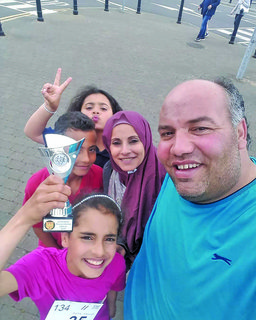Commissioner Johansson emphasises need to share good practice on integration
The new European Commissioner for Home Affairs, Ylva Johansson, praised cities, towns and villages across the European Union for their work on integrating refugees and migrants on 3 December. The President of the European Committee of the Regions, Karl-Heinz Lambertz, welcomed the support, saying that migration in Europe needed "a fairer, more pragmatic and inclusive approach that supports regions and cities".
Commissioner Johansson was speaking on her second working day in her post at a gathering of around 400 local and regional politicians, 'Go Local: Supporting regions, cities and rural areas in migrants' integration'. The conference, co-organised by the European Committee of the Regions and European Commission, aims to promote a strong element of local and regional social investment in the EU's approach to migration. The European Committee of the Regions has been calling, in particular, for support for towns and villages, which, across the EU, are home to about one-third of refugees and immigrants.
Commissioner Johansson stated that: "As European Commissioner, I want to emphasise that one of our long-term goals is building a cohesive society, where each member feels respected and safe. That is why good integration will be one of my priorities. Integration is based on community and communities are built from the bottom up. That is why Go Local is such an important initiative and event." Commissioner Johansson also announced the award of new Emergency Assistance measures to Italy and Spain in support of their efforts to integrate recently arrived people.
The European Commission has called for a tripling in the principal fund through which integration work is supported – currently named the Asylum, Migration and Integration Fund – from €3.1 billion in 2014-20 to €10.4 billion. The EU intends to channel most long-term funding for social inclusion through the future European Social Fund Plus (ESF+).Organisation of the conference was led by the European Commission's Directorate-General for Home Affairs and the European Committee of the Regions, whose President, Karl-Heinz Lambertz (BE/PES), in April 2019 launched the Cities and Regions for Integration initiative together with the then EU Commissioner Dimitrios Avramopoulos.
President Lambertz said, "We need to end scaremongering, do away with divisive, populist rhetoric and work with pragmatism, fairness and solidarity. Over the past decade, cities and towns across Europe have welcomed and supported refugees during a time of austerity. The Integration Initiative continues to grow, showing that villages, towns, cities and regions are helping integrate newcomers every day, and, in the process, creating inclusive communities. The Commissioner's presence today, to engage with regions and cities so early on in her tenure, demonstrates that Europe is not only listening, but willing to act locally".
Other speakers included Virginio Merola (IT/PES), mayor of Bologna and member of the European Committee of the Regions, Annika Annerby Jansson, President of the Skåne region in Sweden; Rutger Groot Wassink, Deputy Mayor of Amsterdam in the Netherlands, responsible for social affairs, democratisation, and diversity; and Oriol Amorós, secretary for equality, migration and citizenship in the Catalan government in Spain.
The conference included workshops on many of the areas of life in which local and regional governments are typically particularly important – housing, health, education, youth work, and sport – as well as areas where the European Commission offers its expertise to cities and regions, such as data, local strategies, and innovative financial instruments.
The EU currently offers support for integration projects through the Asylum, Migration and Integration Fund, the European Social Fund, the European Fund for Regional Development, the European Agricultural Fund for Rural Development, and Erasmus+.










